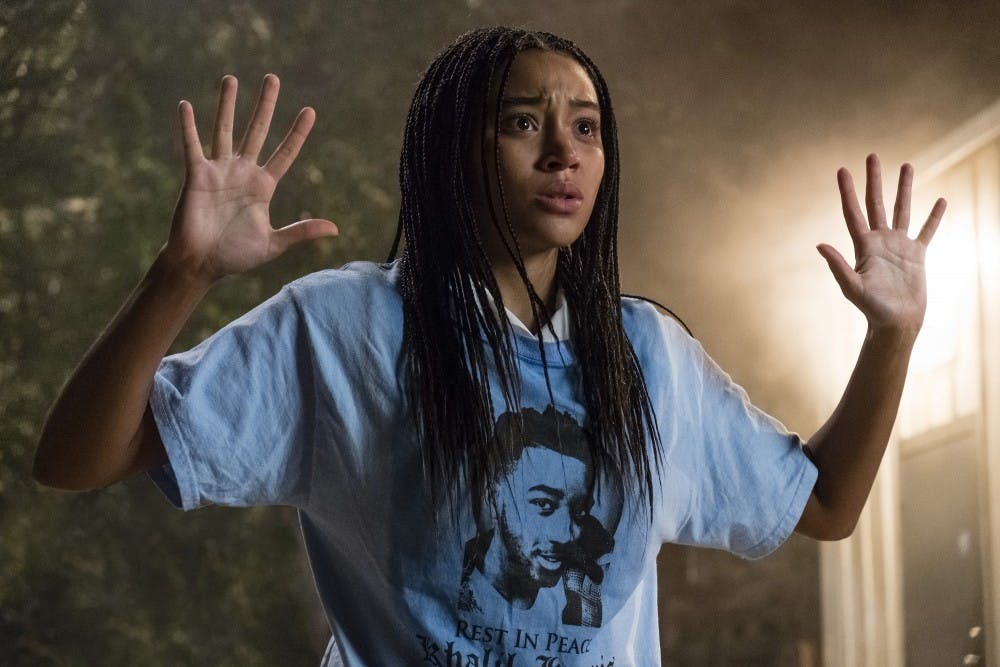"The Hate U Give" tackles timely issues such as police brutality and racism in an unprecedented coming-of-age narrative. "The Hate U Give" is film adaptation of the 2017 young adult novel of the same name by Angie Thomas. Amandla Stenberg, breakout star of "The Hunger Games" portrays protagonist Starr Carter.
The story of Starr follows her double life — her first being that of a member of a lower-income African-American community, Garden Heights, and then her second being a student at a predominately white private school, Williamson Prep. Mirroring the behavior and language of her wealthy peers at school, she avoids doing anything that could make her appear as "ghetto" to her classmates. Starr is able to let her guard down slightly more on the weekends, where she often attends parties in Garden Heights. Even then, Starr feels like she doesn’t exactly have a place in either of her worlds.
At a party, Starr catches up with her childhood friend Khalil. In an effort to pay for the care of his grandmother with cancer, Khalil reveals that he became a drug dealer for a local gang. After a fight ensues, Khalil offers to drive Starr home. Forgetting to turn on his turn signal, Khalil is pulled over and shot dead by a white police officer after Khalil exits the car and reaches back through the window to pull out his hairbrush.
Following the death of her friend, Starr feels compelled to action to be the voice not only for Khalil, but for the impoverished minorities that are hurt by police violence. With the help of her friends and family, Starr begins to realize who she is and how her two lives have given her a unique platform to combat the evils of society.
This film is important for many reasons. First, I would like to applaud the timely conception of the movie. The book was released only 18 months ago in February 2017, and it often takes years for a novel to gain enough momentum to become a film. The current social justice issues called for a quick and truthful adaptation, and "The Hate U Give" is just that.
The film captures both the individualism of the black American experience as well as the classic coming-of-age tale that resonates with almost everyone. All teenagers have at least some concept of not knowing who they are, but "The Hate U Give" extends that to encompass more than just making friends and conflict with family. Starr’s experience is unique to Starr, but audiences can pull bits and pieces from her experience that parallel with their own lives.
Current mainstream media is no stranger to political and social activism. However, the youth of the protagonist is a clear call to the young American — youth and societal change are not mutually exclusive. Starr could have very easily remained quiet on the death of Khalil, especially having been there to witness it. However, she feels compelled to lead her community as a voice for the voiceless, even without much established social or political power. Change begins with everyday people. Change beings with one person deciding they’ve had enough.
The film's modern approach to the issues of racism and racial divides is honest. Instead of pretending like there are no differences across cultures, this film explores the intersection of those differences, and the importance of recognizing that there are universal ethics that all humans should understand.
This film is entertaining, timely and will remain a defining story of our generation as it tackles racism, police brutality, the drug cartel, the complexity of the American minority experience and just how important youth is to society. "The Hate U Give" is a must-see for audiences of every age, race and walk of life — this film proves that all of that disappears when it is time to stand up for what is right.

